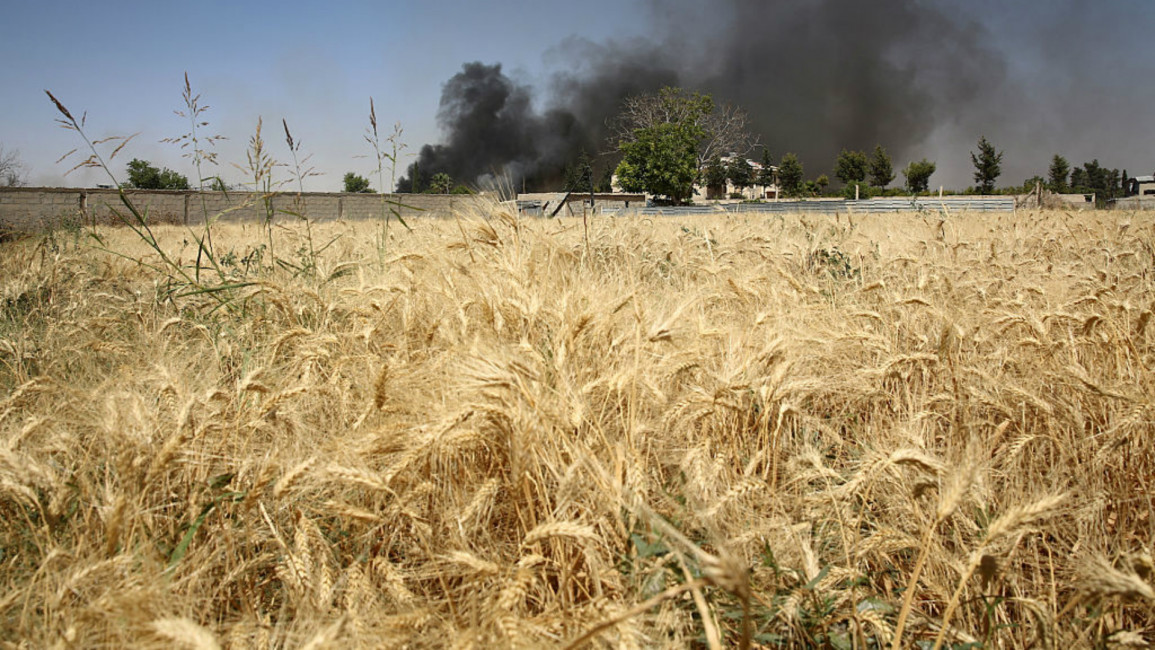
Syria's war and the (overstated) role of climate change
Several recent studies and reports have linked the conflict in Syria to a devastating drought in the period preceding the civil war conflict. While these studies argue that climate change is a risk multiplier and not the sole cause of the civil war in Syria, the causal links between climate change and armed conflict are only assumed but have not been properly examined.
As pointed out by the International Institute for Environment and Development last week, a disproportionate amount of column space over the last year has been given over to highlighting the role of climate change in the Syrian conflict. Lending weight to this correlation, are prominent voices such as Al Gore and Prince Charles, who have highlighted the effects of climate change as a root cause of the conflict.
A growing body of evidence clearly demonstrates that climate change made drought in the Middle East more severe, and there is no doubt that this drought brought much misery to Syrian farmers: According to the UN, the collapse in crop yields forced as many as 1.5 million Syrians to migrate to urban centers just before the war started.
Yet causal links between drought and civil war are more complicated that this. While the drought clearly affected the welfare of many Syrians, the assumption that these aggrieved farmers created, supported or joined rebel groups – leading them to engage in conflict - because of it, is flawed.
The process that leads from feeling aggrieved and being unemployed because of drought, to the decision to take up arms and fight against the government is long, and mediated by many factors. Some people may have insurance, access to compensation or the ability to find another job. They may also simply migrate to other regions to find better opportunities. Taking up arms tends to be the very last resort for people to address their grievances.
 |
Taking up arms tends to be the very last resort for people to address their grievances |  |
Extensive scientific research on rebel recruitment indicates that many factors, including grievances, economic opportunities, ethnicity and informal networks all play a role. While grievances from drought may lead some people to join rebel groups, recruitment motivated by Assad’s political discrimination and ruthless suppression of opposition groups, is far more likely to have swelled the ranks of rebel groups in the country.
Linking climate change to civil war is in fact, not new. The conflict in Darfur for example, has been portrayed by Ban Ki Moon as a climate war. This argument was used by Omar al-Bashir himself, who described the conflict in Darfur as a tribal conflict between the shepherds and the farmers that escalated because of climate change. This was a particularly handy argument in avoiding mention of Khartoum's ruthless repressions and support for the Janjaweed militia in Darfur.
It is important to remember that correlation does not mean causation, and that one factor - climate change - does not rule out other factors. Research to date has failed to converge on a specific and direct association between climate and violent conflict. Instead, the effect of climate change on conflict needs to be analysed together with political, social, demographic and economic factors.
 |
The danger of over-stating the role of climate change in conflict, is that it de-politicises the issue |  |
The danger of over-stating the role of climate change in conflict, is that it de-politicises the issue, and takes the blame away from the leaders running the countries affected by civil conflict. More often than not, it obscures, rather than illuminates more important causes of uprisings and political change, such as inequality, bad governance, poverty, discrimination, ethnic fragmentation and undemocratic transitions.
While Bashar al-Assad has not (yet) blamed the civil war on climate change and still prefers to blame IS – a much clearer specter for the West – excessive emphasis on climate change as a cause of armed conflict may provide handy excuse for dictators and their brutal actions.
The burden of climate change in the Middle East is a reality and is affecting the welfare of millions of people. Much more must be done to mitigate its effects, and make sure that those most at risk are sufficiently prepared.
In parallel, over-emphasising its causal role in armed conflict, risks doing more harm than good. Commentators must use their voice wisely, for clumsy conclusions condemn readers to a piecemeal understanding, and those affected, to reductive, over-simplified narratives.
Opinions expressed in this article remain those of the author and do not necessarily represent those of The New Arab, its editorial board or staff.



